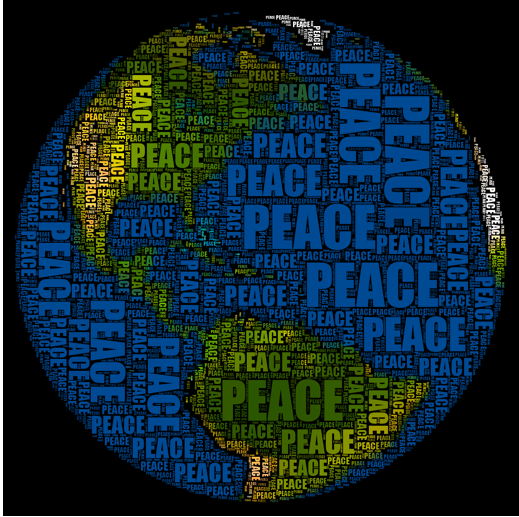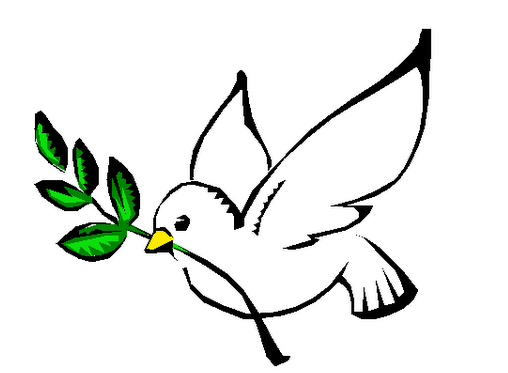One of the satisfying things about social media is stumbling upon an idea or person who shares the same idea as you, it’s a sigh of relief, “Ah, I’m not alone in this thought- there is someone else who sees the world from a similar perspective.” We humans are herd creatures, we like to be around others like ourselves and when we feel alone we are uncomfortable. Previous to the World Wide Web I often found myself surround by humans yet still felt alone in a crowded room because I had to watch what I said out loud, sometimes I would even hide the cover of a book or magazine I was reading to avoid ridicule or confrontation. While I love the many people in my private life, I don’t always share the same views and ideas that some of them do, I frequently find myself the odd man out in philosophical and political discourse. In the past when I did not agree with their views I was pleasantly told I was naïve and uninformed. I don’t have an eidetic memory and previous to the internet and social media it wasn’t feasible to carry around a set of encyclopedias, so I usually took the jibes and suffered in silence replaying in my mind the answer I should have given long after the conversation was over.
Recently, a new acquaintance from various common friends and groups has arrived in my Face Book feed, Bob McCormick, and I started reading his posts about something as absurd as ‘world peace’! Imagine, someone with the audacity to say we should actually attempt world peace! He posts stuff like this, “No matter how clever we are when it comes to science and technology, the generation that finally ends war will be the generation that deserves the credit for ending the era of primitive humans.” This article is going to be about peace and I hope you continue reading and don’t immediately blow it off, “Nice fantasy, it’ll never happen, next article.” Oh, and your next thought, “What about what is going in the Middle East right now? That’s been going on for generations.” Just put that on the back burner for a bit, I will get to that.
It is true that war has been with us for as long as recorded history and it may seem that it is part of our human genes but apparently those two thoughts may not actually be true. Recently I watched this short video from Dacher Keltner, Ph.D., Stanford University and he describes his findings at UC Berkeley on research he has done on kindness and compassion. He believes, like Darwin, that we are hard wired for kindness and this is what actually preserves our species. It is the acts of kindness and compassion that help us grow and can be seen in MRI experiments of human brains, it is not necessarily true that we are hard wired to perpetual war. There are cultures existing in the past and in the present that promote and thrive on non-violent conflict resolution. An example of one such culture is the Semai in Malaysia.
“The purpose, for the Semai, of having such a formal meeting, called a bcaraa’, is to settle the dispute rather than to determine guilt or innocence. After a lot of socializing, a headman will give a long lecture on the importance of group solidarity, mutual dependence, and peace. Then the principals to the dispute will present their viewpoints in speeches that may continue for many hours, until no one has anything additional to say and everyone is exhausted. The headman then concludes the bcaraa’, perhaps by levying small fines if appropriate, and he continues by lecturing everyone on correct, peaceful Semai behavior. The meeting resolves the dispute itself, reconciles the parties, dissipates their emotions, reintegrates the whole village, reaffirms everyone’s interdependence, and re-confirms the importance of nonviolent behavior.”
For me, the most significant portion of that paragraph is ‘to settle the dispute rather than to determine guilt or innocence’. This may be the reason we continue to see war and violence, because we are extremely focused on blame. Most historians agree that the Versailles Treaty is partially responsible for WWII, because of the blame and reparations that were placed on Germany after WWI. The world felt the need to blame and punish instead of attempting to settle the dispute. If we consider this tendency to place blame and to punish we can see how this creates other social problems, like over populated prisons from an ineffective war on drugs, and because we feel the need to punish people instead of understand or solve the root cause. Currently, we are pointing fingers at people we think are responsible for the ongoing wars around the world instead of searching for the root cause of the struggles of the people in those areas. “You killed our people so now we are going to kill yours.” This learned behavior of resolution through violence is very much a part of our dialogue but as Dr. Keltner and Darwin suggest they are not necessarily part of our DNA. From the studies of Peter Kropotkin, Russian geographer, economist, activist, philologist, zoologist, evolutionary theorist, philosopher and writer we get; “Kropotkin's observations of cooperative tendencies in indigenous peoples (pre-feudal, feudal, and those remaining in modern societies) led him to conclude that not all human societies were based on competition, such as those of industrialized Europe, and that many societies exhibited cooperation among individuals and groups as the norm.” He wrote this in the 19th century. It is not a new idea.
This leads me to contemplate; we may not be doomed to perpetual war and violence and we may be able to find a path for survival that does not include our own mutual destruction. It turns out that I am not as naïve as some have suggested. There exists many organizations striving towards a world without war. So why aren’t we there? Why does every generation have violence and war? Because we are taught to believe it is normal human behavior, we are given the message from very early on; we hear about it, we see it on TV, our teachers discuss battles in history class, millions of books have been written about it, there are movies, monuments and museums dedicated to war. Soldiers are declared heroes but not farmers or teachers. We have parades and celebrations related to war events. Do we celebrate Jethro Wood, inventor of the cast iron plow, made in three parts, so that a broken part could be replaced without purchasing a new plow which improved farming so that we could eat instead of 4th of July? No, most people do not spend any time thinking about where their food comes yet it is essential to life. It is a question of where we choose to place value and we have historically chosen to place value on war. Do we tell our children they can’t grow to be whatever they want? Do we tell our boss his idea won’t work? No, we find solutions, we offer encouragement, and we imagine, dream and solve problems. However, consider a world without war- no, we aren’t even allowed to attempt to resolve that problem. That’s ridiculous. That’s impossible. We accept that war is inevitable because 1- we have been taught it is and 2- because it benefits a small portion of society who are invested in weapons. These two reasons are why we are at war in the Middle East because we think war is inevitable there and because it benefits a small portion of society financially.
In her keynote speech delivered at The Abolition of War conference, Vaasa, Finland, Spring, 2014 Dr. Judith Hand argues that “War Is Not Inevitable”
“The first way such a campaign would fuel a nonviolence worldview shift is that it would be above all an awareness movement. It tells all the people of the world— using every kind of media available—that contrary to what they believe, scientists as well as philosophers, political leaders and lay workers have discovered that war is NOT an inescapable human burden, not something built into our genes. So right away we would generate a new way for people to think about the use of violence, including the violence of war. They begin to see it as something from which we might actually escape.”
We have been taught to believe war and violence are an undeniable part of our existence. Much as women were told that they were lesser than men we believed that lie for centuries yet we now know it is not true, there is little significant difference in human brains whether by gender or race. We have not questioned the validity of the truth of war. We were taught war cannot be eliminated and have not taught our children NOT to accept the idea. We listen to John Lennon’s Imagine and for the duration of the song we sing along and think, “Wouldn’t it be nice?”, but we don’t allow ourselves to actually internalize the message. Consider telling yourself, “Why not? Why not consider an alternative to violent action?” When you hear politicians talk about ‘bombing the heck out of them’ consider answering, “No, that is not the only way to handle it. Let’s think of settling our dispute.” It has happened before; in October, 1962 the leaders of two superpowers recognized the devastating possibility of a nuclear war and publicly agreed to a deal in which the Soviets would dismantle the weapon sites in exchange for a pledge from the United States not to invade Cuba. This week our president is in Cuba talking about a promising future relationship. We have learned from centuries of teachings that war is part of our nature, yet, a cursory search yields about 253,000,000 results of organizations seeking peaceful resolutions.
It would seem that many people are contemplating a world beyond war and are working towards bringing the idea to the forefront. Why are there so many people exploring and working towards this goal if war is a defined part of the human psyche? Perhaps because more and more people are beginning to realize that we are not doomed to constant war, perhaps people are questioning the validity of that belief. It won’t be easy. It won’t happen quickly. It will take great effort on the part of many people and groups. UNESCO recognizes the challenges on their webpage “Yet, lasting peace rests on a complex and fragile web of daily practices embedded in local settings and the most ephemeral encounters that individuals and communities creatively maintain out of the conviction that they constitute the sustainable conditions for living together in dignity and shared prosperity.” It may seem a daunting task and I share Dr. Judith Hand’s conclusion from her speech, “To bring this talk to conclusion, I return to that powerful quote attributed to Nelson Mandela, something we can and should tell each other often. I know I often tell it to myself: "It always seems impossible, until it is done."
In Quebec this summer a forum is being held to consider, another world with their goal of: “The goal of the WSF 2016 is to gather tens of thousands of people from groups in civil society, organizations and social movements who want to build a sustainable and inclusive world, where every person and every people has its place and can make its voice heard.”
"When you're imagining peace, you can't kill anyone. That's good isn't it?" Yoko Ono





Comments